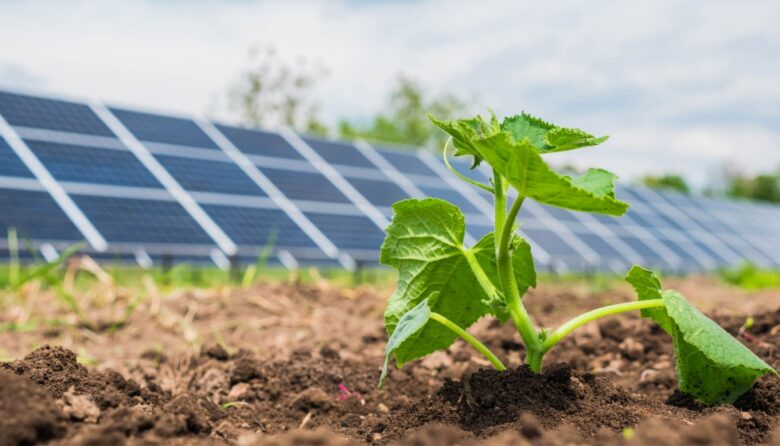As the search for sustainable agricultural practices gains prominence, the integration of solar energy into the agricultural sector emerges as an innovative solution. This article explores the synergy between solar energy and sustainable agriculture, highlighting the benefits of this partnership for agricultural productivity, sector resilience, and environmental impact reduction.
The Need for Sustainability in Agriculture
Agriculture plays a vital role in global food security, but conventional practices often result in negative environmental impacts. Faced with this scenario, the transition to more sustainable methods has become imperative. Solar energy emerges as a clean and efficient alternative, offering solutions to the challenges faced by modern agriculture.
Solar Energy for Rural Electrification
In many rural areas, electrification is a persistent challenge. Solar energy can be an effective answer, providing electricity for water pumps, irrigation systems, and other agricultural needs. Rural electrification through solar energy not only improves the living conditions of agricultural communities but also boosts agricultural productivity, enabling more efficient and sustainable practices.
Solar Pumping Systems: Clean Water, Renewable Energy
Water scarcity is one of the major challenges faced by agriculture. Solar energy offers an innovative solution through solar pumping systems. These systems convert solar energy into mechanical energy to extract water from wells or sources, providing a sustainable and renewable source for crop irrigation. This approach not only conserves water resources but also reduces dependence on fossil fuels in remote areas.
Solar Roofs on Agricultural Structures: Dual Utility
Agricultural structures such as barns and warehouses offer ideal surfaces for solar panel installation. Solar roofs not only generate electricity to power agricultural operations but also provide shade and protection against the elements. This dual utility makes solar roofs a valuable addition, optimizing available space and contributing to the energy sustainability of the farm.
Solar-Driven Vertical Farming
Vertical farming, an innovative approach to maximize space usage and reduce environmental footprint, can be enhanced by solar energy. Solar lighting systems can complement natural light, enabling plant cultivation in layers. This not only increases land use efficiency but also reduces the need for long-distance food transportation, decreasing associated emissions.
Efficiency of Solar-Powered Irrigation Systems
Irrigation is fundamental for the success of agricultural practices, but excessive water consumption raises environmental concerns. Solar-powered irrigation systems offer an efficient solution. By harnessing solar energy to power pumps and irrigation systems, farmers can optimize water usage, applying it precisely where needed. This not only conserves water resources but also reduces operational costs.
The Economic Sustainability of Solar Energy in Agriculture
While the initial investment in solar infrastructure may be considerable, long-term economic sustainability is noteworthy. Reductions in operational costs, energy independence, and, in some cases, the ability to sell surplus energy back to the grid contribute to the return on investment. Additionally, government incentives and financing programs facilitate the adoption of solar energy in agriculture.
Conclusion: A Sustainable Future for Agriculture
In conclusion, the integration of solar energy into agriculture is not only a response to the challenges faced by the sector but also an opportunity to drive more sustainable practices. The synergy between solar energy and sustainable agriculture not only enhances operational efficiency but also reduces environmental impact. By investing in this alliance between solar energy and agriculture, we are laying the foundation for a more sustainable, resilient agricultural future capable of addressing evolving environmental challenges.



